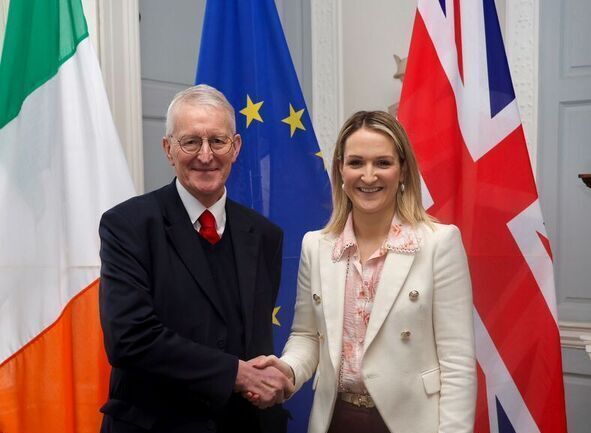Published in the Irish Echo, Sept. 12, 2012.
Between the Lines / By Peter McDermott
In the 1976 film "All the President's Men," the character Deep Throat rails against the media’s "inexactitude" and "shallowness."
The world learned in 2005 that Mark Felt, the FBI’s number 2, was the man who’d spoken with Bob Woodward more than 30 years before in that Washington DC underground car park. The screenwriter William Goldman hadn’t known that the character was an official in an agency whose stature depended to some degree on the shallowness of an adoring media.
The Felt of 1972, though, was disappointed that the White House appointed outsider and “political hack” Patrick Gray rather than him as acting FBI director following J. Edgar Hoover’s death, the month before the Watergate break-in. He was appalled, too, at the attempts to derail any serious investigation into the administration’s criminal misdeeds. He made the media his instrument by being a source on deep background for Woodward and his Washington Post partner Carl Bernstein.
The articles by the then 28- and 29-year-old reporters and their colleagues at the Post and other major outlets helped lead to President Richard Nixon’s resignation and to the jailing of several of his top aides and his attorney general.
Nixon had always believed that reporters were out to get him and thus was a natural at tapping into deep-rooted resentments about the media’s alleged “liberal bias.” Part of the issue here is that liberals believe in hearing multiple perspectives, while conservatives don’t have much patience with that approach and are more likely to hold that certain truths are self-evident. In any case, the president’s aides would have preferred if Walter Cronkite of CBS were more like a newsreader on Soviet TV.
Nixon’s brilliant media consultant Roger Ailes discussed with top aide Bob Haldeman (in his pre-prison days) ways of getting a pro-Administration network up and running. Part of the idea was that it would send out packaged propaganda, free, to local affiliates. Ailes went on much later to build Fox News into the powerhouse that it is, much to the horror of Cronkite in his last years.
Inevitably, it was this Nixon-era inspired right-wing media that accused Felt upon his death in December 2008 of betrayal rather than heroism -- even though he’d never handed over files, and merely guided and encouraged the Post’s Woodward.
So, in this post-Cronkite world, how come the right wing, which is supposed to be for traditional values and condemns “moral relativism,” stands accused of being “post-truth”?
Well, bias like beauty is in the eye of the beholder, but propaganda is just that: propaganda. You might aim to be slick and to entertain millions, but once you decide you are backing one side you have an additional set of goals.
“It is not propaganda’s task to be intelligent,” Joseph Goebbels said in the late 1920s, “Its task is to lead to success."
The Democratic and Republican parties twist the truth and lie in their efforts to persuade. But when a TV network’s commentary arm does it, and so blatantly, it just makes the politicians far worse. Many politics watchers were left scratching their heads at the GOP convention last month. They couldn’t remember an address quite like the one made by the vice-presidential candidate. One Washington Post headline captured the mainstream media reaction: “Paul Ryan’s breathtakingly dishonest speech.”
There were about five main objections to it from commentators, Democrats and groups like Fact Check.org. Let’s look at one of them. Here’s Ryan on President Obama: "He created a bipartisan debt commission. They came back with an urgent report. He thanked them, sent them on their way and then did exactly nothing."
A presenter of public radio’s “On the Media” and an Advertising Age columnist Bob Garfield summarized in a Guardian piece the problem with that. “What a powerful anecdote – one that gets even more powerful when you know that Ryan was a commission member whose deciding vote against the report prevented it from being presented to Congress. Or that the president's attempt at a 'grand bargain' with House Republicans exceeded the commission's recommendations for spending cuts."
For Garfield, the media that is able to pull up the man they now call Lyin’ Ryan on his departures from fact is a healthy one; he argues that it is less craven than it was in decades past.
It’s certainly true that the intellectually curious and the open-minded can keep informed. Take the insider accounts of what happens in the corridors of power that Woodward helped pioneer. They have their biases and there are disagreements over the interpretation of the information presented, but the sources are generally reliable. Nobody has disputed Robert Draper’s “Do Not Ask What Good We Do,” which has an account of a dinner on the night of the inauguration of the 44th president in January 2009; and it’s backed up by at least one other book.
The dinner was attended by a dozen male Republican politicians – seven House members, including Ryan and Newt Gingrich, and five senators, Jim DeMint and Jon Kyl among them. At the end of four hours, they’d pledged they would reject everything and anything that the new president proposed.
This sort of unrelenting obstructionism goes against how the American system is supposed to work. Yet, the hectoring, flag pin-wearing media help make it possible.









